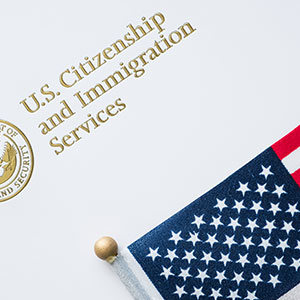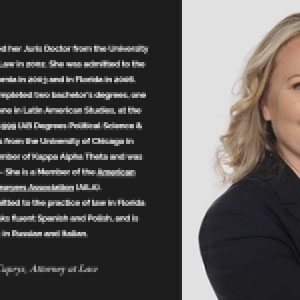
A controversial proposal that would boost the number of wealthy immigrant investors allowed in the United States under the EB-5 investor program is now under consideration by the Trump administration. The proposal would significantly boost up the capped total from 10,000 to 75,000 and reduce the required investment by half from $900,000 to $450,000. More than half of the investors who come to the United States on an EB-5 visa are from China. Many other investors come from South Korea and Taiwan. The EB-5 visa began in 1990 as an effort to help rural areas and economically distressed urban areas. However, over the years, some investors have found a way to increase investment in higher-income areas. For instance, EB-5 visas are sometimes used by property developers in New York City. It is believed by the administration that increased investment in projects in the United States that could create jobs would be especially helpful at a time when unemployment rates have soared. Critics Critics who are…Read More

Navigating immigration processes can be stressful at any time. During a global pandemic, the situation can become even more complicated. For instance, what do you do if you’re in the United States and at risk for overstaying your visa? Overstaying Your Visa Overstaying your visa can come with a cost. In the worst-case scenario, you may be prevented from entering the United States or from applying for another visa. If you overstay your visa from between 6 months to a year, you may be banned for at least three years. If you overstay longer than a year, you can be barred for ten years. Given the travel restrictions, it’s difficult to just book yourself a flight to your home country. So what do you do? The USCIS has issued a set of guidelines. If your case is complicated, you will want the assistance of an experienced immigration attorney. Apply For An Extension If you intend to remain in the United States, then you can apply for…Read More

Shutdowns due to the COVID-19 pandemic have led to millions of workers across the country being laid off from their jobs. This has been a hardship for many people, but for those in the United States on work visas, the situation has become particularly tenuous. Workers On H-1B Visas H-1B visas are specialty visas granted to foreign workers who have at least a four-year college degree. This visa program is commonly associated with the tech sector but is also available for workers in healthcare, academia, and other fields. The United States puts a cap of 65,000 visas every year. When the number of applications exceeds the cap, which it typically does, then the applications processed are chosen by a lottery system. Most H-1B visa holders have made multiple attempts before being granted a visa. In order to stay in status for an H-1B visa, you must be working for the employer you stated you would be working for in your application. You also need to…Read More

In January of 2020, a divided Supreme Court allowed US officials to implement the so-called “public charge” rule. The rule, which was unveiled in August of 2019, is expected to result in serious restrictions on immigration. It expands the definition of an individual who is or could be an economic burden on the United States. Public Charge Rule The public charge rule gives immigration officials more power to deny visa and green card applications from immigrants who, in the opinion of the United States government, rely or could potentially rely on certain government-offered benefits. Similar rules were previously in place, but the new rule focuses more on cash benefits. Immigration caseworkers can now consider an immigrant’s enrollment in a wide range of federally funded programs in areas such as healthcare and nutrition. Critics argue that the public charge rule will drastically limit the immigration possibilities for numerous foreign nationals from developing countries. However, not all categories of prospective immigrants will be affected. O Visas The…Read More

The American Medical Association (AMA) is urging the Trump administration to open up the visa process to allow more foreign physicians to enter the country. This request comes in light of the COVID-19 pandemic when there is a greater need for doctors across the country. The AMA wants foreign doctors to quickly become part of the workforce. In a March letter to Secretary of State Mike Pompeo and Acting Secretary of Homeland Security Chad Wolf, the AMA urged an opening in the visa process at embassies and consulates worldwide for physicians seeking to enter U.S. residency programs in July. The AMA also urged public confirmation that J-1 physicians could be redeployed to new rotations. The Importance Of An Open Process There was already a physician shortage in the United States, even before the pandemic. The long and lengthy H-1B visa process has made it difficult for health systems to get qualified medical professionals in a timely manner. The process began to take even longer under the Trump…Read More

In January of 2020, Trump added new countries to his U.S. visa travel ban. This move will virtually block immigration from Africa’s most populous country, Nigeria. It will also block immigration from Myanmar, where Muslims are fleeing genocide. Additional countries include three more African countries: Eritrea, Sudan, and Tanzania. In addition, the former soviet state Kyrgyzstan has been added to the ban. Visa Travel Ban All of the banned countries have substantial Muslim populations. Immigrant visas will be banned for those in Nigeria, Myanmar, Eritrea, and Kyrgyzstan. Immigrants from Sudan and Tanzania will not be allowed to participate in the diversity lottery, which issues green cards to 50,000 people each year. The latest travel ban took effect on February 22, 2020. Immigrants obtaining visas before then will still be able to come to the United States. Nonimmigrant visas, including those for temporary employees and employees with specialized skills, will not be affected by the ban. In addition, some immigrants will be able to apply for…Read More

If you were the victim of a crime, you may be eligible for a U visa, which would provide you temporary nonimmigrant status in the United States. The U visa was created among growing public safety concerns and to encourage individuals who have been crime victims to cooperate with law enforcement in prosecuting criminals. If you are approved for a U visa, you will be given legal status in the U.S. with the potential for extensions. Once you have your U visa for three years, you may be able to apply for a green card. To obtain a U visa, it is not enough to simply state that you were the victim of a crime. You must provide a “certificate of helpfulness” from a government agency and show that you suffered mental or physical abuse by a U.S. perpetrator. U Visa Eligibility You must meet the following criteria to be eligible for a U visa: You must be the victim of “qualified criminal activity” that…Read More

Immigration Attorney Magdalena Cuprys succeeds in obtaining bond for client evicted from public housing as part of an eviction campaign in Pasco County Former public housing resident was accused of improperly receiving government benefits, but Immigration Court granted bond and release from custody Miami, FL (September 2018) The law firm of Cuprys and Associates announced today that immigration Lawyer Magdalena Cuprys succeeded in obtaining bond for a client, Ms. C.A., a Mexican citizen. C.A. was accused of improperly receiving public assistance payments and subsidized housing benefits in Pasco County, Florida, based on a fraudulent Social Security card that she had purchased for $100. She was taken into custody after an investigation at a subsidized housing project where 30 undocumented families and about 60 U.S. born children were evicted. According to news reports, some of the residents claimed that Housing Authority officials told them that they could live there regardless of their legal status in the U.S. as long as they had U.S. citizen children. Ms.…Read More
The United States Supreme Court announced the decision in Pereira v Sessions regarding the stop-time rule on June 21, 2018. In simple terms, the “stop-time rule” defines when continuous residence or continuous physical presence of a non-citizen ends. See INA § 240A(d). According to INA § 240A(d), continuous residence ends when either the non-citizen commits a criminal offense, or is served with a “Notice to Appear” (“NTA”) placing him/her in removal (deportation) proceedings. See INA § 240A(d)(1)(A)-(B). In this important decision, the Supreme Court pondered whether the stop-time rule is triggered when the government serves a non-citizen with a document that is labeled “Notice to Appear” but fails to specify either the time or place of the removal proceedings. Pereira v. Sessions is about Wescley Fonseca Pereira, a Brazilian citizen, who overstayed his visa in the United States. The visa expired on December 21, 2000. In May 2006, Pereira was served with a Notice to Appear by the U.S. Department of Homeland Security (DHS). While…Read More
Immigration Lawyer Magdalena Cuprys of the law firm Cuprys and Associates announced today that the Board of Immigration Appeals ruled in her client’s favor regarding a removal (deportation) proceeding. On appeal, citing Matter of Serna, the Board finds that mere possession of an altered immigration document, without intent to use it unlawfully, is not a “crime of moral turpitude.” The Board therefore reversed the Immigration Judge’s determination that the person should be sent back to Mexico on those grounds. Ms. Cuprys had sought a so-called “cancellation of removal” for her client L.R. (originally from Mexico) under Section 240A(b) of the Immigration and Nationality Act, which is a relief that allows a person who does not have legal status to remain here if he or she has been here for 10 years, has not committed serious crimes, and if removing him or her from the country would be a hardship for U.S. citizens or permanent residents such as children or other close relatives. In the initial…Read More